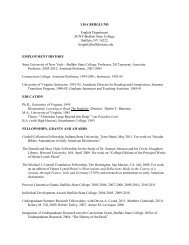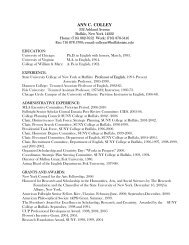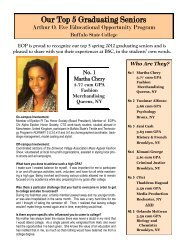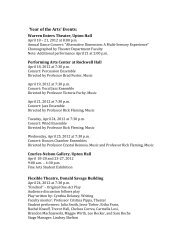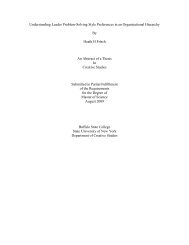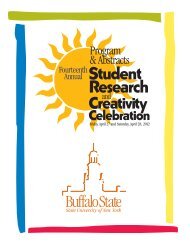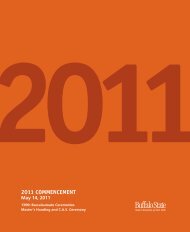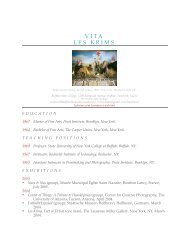POLITICS VERSUS SCIENCE: APPORTIONING ... - Buffalo State
POLITICS VERSUS SCIENCE: APPORTIONING ... - Buffalo State
POLITICS VERSUS SCIENCE: APPORTIONING ... - Buffalo State
You also want an ePaper? Increase the reach of your titles
YUMPU automatically turns print PDFs into web optimized ePapers that Google loves.
eorganization (described above), would not provide the necessary protection.<br />
Regulation should take the form, not of an informational agency, but a European Food<br />
and Public Health Authority, an agency 11 with the combined scope of the U.S. Centers<br />
for Disease Control (CDC) and the Food and Drug Administration (FDA). This authority<br />
would break new ground, as it would be the first time the control function for a social<br />
policy would be removed from the Commission and Member <strong>State</strong>s. According to the<br />
authors, the current regulatory configuration artificially compartmentalized risk factors to<br />
human health. Their solution took into account two factors: the science-based notion of<br />
interconnectedness among animals, the environment, and humans (depicted in Figure 2)<br />
and the interconnectedness in risk assessment, communication, and management<br />
(depicted in Figure 1).<br />
<br />
Furthermore, they traced the failure of the EU to contravene food crises to an<br />
artificial separation of risk assessment, communication, and management among the<br />
regulatory and implementing parties, concluding that “systems need to be in place to<br />
show the links with policy-making, risk management, control and audit processes which<br />
are capable of rapid and effective action” (James et al. 1999; 14). Hence, two new<br />
notions—the systems approach to food safety and the close interaction required in<br />
assessing, communicating, and controlling risk—informed their proposal for a European<br />
11 The authors (1999, 40) recommend “Authority…because it is distinctive and immediately specifies a<br />
different entity from the Agency concept which is so familiar to Commission officials and Member <strong>State</strong><br />
policy-makers. It has also, in English, the ring of excellence and the ability to respond which may be<br />
helpful given the recent crises.”<br />
17




